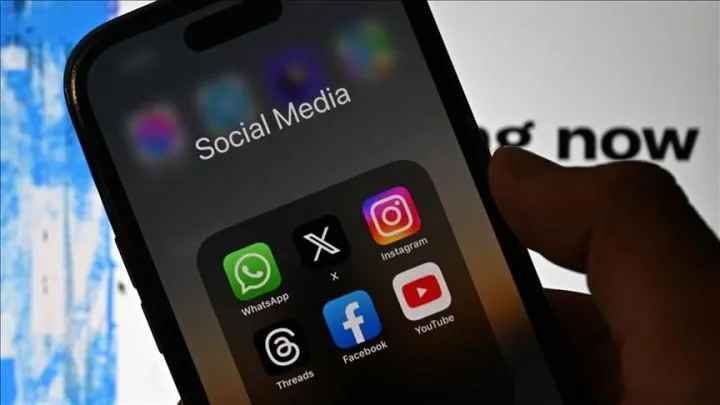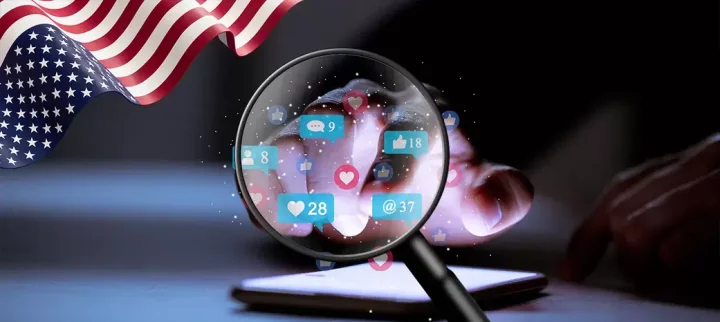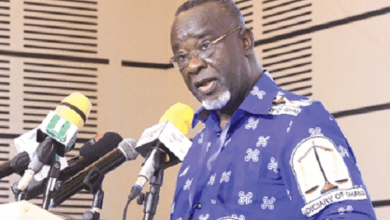These 7 social media posts could ruin your U.S. visa chances


In a move that significantly increases the scrutiny of visa applicants, the U.S. Department of State announced a new requirement effective June 18, 2025, for all F, M, and J visa applicants-mostly students and exchange visitors.
According to this policy, applicants must list all social media usernames they’ve used in the past five years on their visa application (Form DS-160) and ensure their accounts are set to public. This is not just a formality; U.S. consular officers will actively review the entire digital footprint of applicants during the vetting process.
This includes scanning social media platforms, running search engine checks, and using tools like LexisNexis to search for additional online information. This change reflects the U.S. government’s intent to conduct what they call “comprehensive and thorough vetting” of foreign nationals before granting entry into the country.
These digital checks are now a core part of evaluating whether an applicant poses a national security threat or is likely to violate immigration laws.

Under the new rules, visa applicants must make all their social media profiles public during the screening process. Any attempts to hide, delete, or make accounts private may be viewed as suspicious or evasive.
Additionally, applicants must provide all social media handles used over the past five years, not just those currently in use. These changes allow the consular officers to observe patterns in behaviour, beliefs, or affiliations that might not appear on traditional application documents.
The reasoning behind this shift is tied to increased concerns about terrorism, extremism, and antisemitism. U.S. immigration agencies now regard social media as a valid reflection of someone’s character, beliefs, and potential threats.
Posts that once may have been seen as personal or expressive are now being used as evidence during visa determinations. The Department of Homeland Security and the Department of State are particularly focused on applicants who may promote violent ideologies, show hostility toward the U.S. government, or display antisemitic behaviour online.
7 Social Media Posts That Could Ruin Your U.S. Visa Chances
Here are some of the most common red flags that can cause a visa application to be denied based on your social media activity:
1. Terrorism Or Extremist Support
Any post, comment, like, or shared content that supports or promotes terrorist groups such as ISIS, Al-Qaeda, Hamas, or Hezbollah can be grounds for immediate denial. Even seemingly minor engagement with these topics is flagged.
2. Violent Political Content
Expressing or supporting political violence, revolution, or militant resistance, whether in your country or abroad, may suggest that you’re a threat to U.S. security or public order.
3. Hostility Toward The U.S. Government Or Culture
Posts that show hatred or aggression toward American laws, leaders, or values can indicate that you’re not likely to respect U.S. norms and might abuse your visa.
4. Antisemitic Or Hate Speech
Recent reports show that consular officials are now instructed to deny visas based on signs of antisemitism found online. Posts that joke about or target Jewish people, Holocaust denial, or conspiracy theories around Israel or Jewish influence could be interpreted as inciting hate.

5. Criminal Behaviour Or Affiliations
Photos or posts showing illegal activity like drug use, weapon handling, or association with gangs can be interpreted as proof of poor moral character or a criminal history.
6. Fake, Blank, Or Private Profiles
Having no online footprint or submitting fake usernames can lead to suspicion. Consular officers are trained to question such inconsistencies or the absence of any digital history.
7. Disrespect For Immigration Laws
If your social media activity shows any plans to overstay a visa, work illegally, or misuse student or tourist visas, this can also result in rejection.
Even if your intentions are innocent, content taken out of context, such as jokes, memes, or sarcasm, may be misread. Because of this, seemingly small things like liking a controversial post or sharing a political opinion could delay or derail your application.
What You Should Do Before Applying

Before submitting your visa application, it’s crucial to audit your social media presence. Go through all your public posts, photos, and comments across platforms like Instagram, Facebook, TikTok, X (formerly Twitter), LinkedIn, and YouTube.
Delete anything that could be seen as controversial, inflammatory, or unlawful. Avoid posting anything political or aggressive, especially related to U.S. policies, religion, or race. However, avoid deleting your accounts entirely.
Having no presence or suddenly removing all your posts can raise red flags. Instead, clean up your profiles while maintaining transparency. Remember to list every platform you’ve used in the last five years honestly, even if you rarely used them. Dishonesty or omissions could be seen as grounds for denial.
In the digital age, your online presence is just as important as your application forms and supporting documents. What you post, like, and follow on social media can and will be used to judge your eligibility for a U.S. visa.





